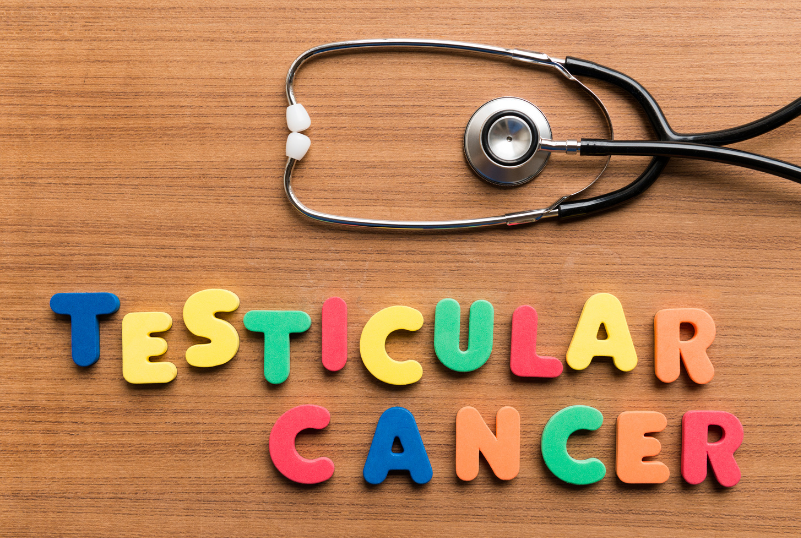This blog is written by our clinicians and aims to keep patients informed with up to date information on medical conditions.
Understanding testicular cancer and why men should not be shy to get tested early
Testicular cancer is a curable malignancy that affects men between the ages of 15 and 34. It is one of the most common cancers in young men, but it is also highly treatable. Testicular cancer accounts for about 1% of all cancers diagnosed in men each year. The American Cancer Society estimates that there will be about 8,000 new cases of testicular cancer in 2017.

Testicles are a pair of male sex organs that produce sperm and testosterone. They are located in the scrotum, which is the pouch of skin that hangs down behind the penis.
- The testicles are sensitive to temperature.
- They can be injured easily if you hit them or they get caught on something sharp.
- They tend to be more vulnerable to cancer than other internal organs because they have little protection from immune cells and there is no blood supply to carry away damaged cells or toxins.
The testicles are held in place by a sack of skin called the scrotum, which hangs below the base of the penis. The scrotum contains two testicles, which are male reproductive glands that produce sperm and the hormone testosterone. The testes are about 2 inches (5 centimetres) long and are made up of several sections – each section is divided into tiny tubes called seminiferous tubules where sperm cells grow and mature before they’re released from the body through ejaculation.
Testicular cancer is a relatively rare cancer that develops in the testicles (testes), which are located inside the scrotum, a loose bag of skin underneath the penis. Testicular cancer is not as common as other types of cancer. It accounts for only 1-2% of all cancers diagnosed in men worldwide each year. This type of cancer typically affects men between 20 and 34 years old, but it can also affect older adults whose immune systems are compromised by conditions such as HIV/AIDS or who have had organ transplants to replace damaged organs with healthy ones from donors.
Testicular cancer usually affects young or middle-aged men, with about half of all cases occurring in men between ages 20 and 34 (though it can happen at any age). It’s highly treatable, even when cancer has spread beyond the testicle. In some cases, treatment results in a cure. Many people who have testicular cancer have no symptoms until the disease has advanced to an advanced stage and spread to other organs or tissues in the body (called metastases).
Cancer develops when a gene mutation allows cells to grow and divide uncontrollably to form a tumour. Tumours can be benign or malignant, meaning they will not spread throughout the body or they can spread to other parts of the body.
Cancer is not one disease with one cause; it is actually many diseases with many different causes. The most common types of cancers are skin melanoma, breast cancer, lung cancer and prostate cancer in men; uterine corpus endometrial carcinoma (uterine lining), cervical carcinoma (cervix), colonic adenocarcinoma (colon) and pancreatic adenocarcinoma (pancreas).
Doctors have found no way to control risk factors for testicular cancer, but they recommend regular self-examinations as well as regular medical exams and blood tests to check for abnormal levels of tumour markers — substances produced by tumour cells that may be found at higher-than-normal levels in the blood. The most common symptom of testicular cancer is a lump or swelling in one or both testicles. Men who notice a new mass, swelling, lumps or pain should see their doctor right away. In fact, if you have any testicle-related symptoms and have them checked out by your doctor, it’s likely that you’ll be told that nothing is wrong — even though you may still feel something isn’t quite right.
It can be difficult to know whether or not you should seek medical attention for a lump in your testicle. The best thing to do is always get it checked out by your doctor. If you notice any changes in the size, shape or feel of one or both of your testicles, it is important for men to see their doctor as soon as possible so that they can be evaluated for any signs of cancer or other problems with these organs.
Please contact our team at 01224 515 254 to book an appointment with our urologist if you notice any changes in your testicles.

